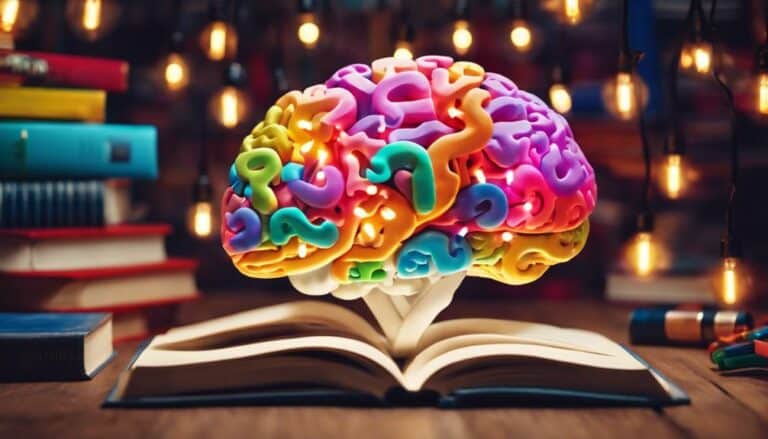Have you ever wondered why some individuals seem to make questionable decisions or struggle with basic tasks?
The perception of intelligence is a complex interplay of various factors that go beyond mere cognitive abilities.
As you explore this topic further, you will come to realize that societal influences, educational backgrounds, and even environmental factors play a significant role in shaping one's intellectual capabilities.
The reasons behind why some people may appear 'dumb' are not always straightforward but rather a nuanced blend of numerous elements that warrant deeper inspection.
Key Takeaways
- Intelligence perception shaped by societal influences and cognitive biases.
- Emotional intelligence crucial for understanding others and fostering connections.
- Continuous learning and growth mindset essential to combat ignorance.
- Effective communication strategies can bridge gaps in knowledge and understanding.
Understanding Different Perspectives
Understanding different perspectives on intelligence is crucial for gaining insight into the diverse factors that influence individuals' levels of cognitive abilities.
In the realm of Social Psychology, it's evident that our understanding of intelligence isn't solely based on objective measures but is heavily influenced by subjective interpretations. People often have blind spots when it comes to assessing intelligence, as cognitive biases and societal influences can skew perceptions.
Factors such as upbringing, education, and exposure to diverse ideas play a significant role in shaping how intelligence is perceived. These influences can create a complex tapestry of beliefs about intelligence, leading to a wide array of perspectives.
Empathy and Compassion
Empathy and compassion play crucial roles in fostering emotional connections and promoting kindness and altruism. When individuals can understand and share the feelings of others (empathy) and feel concern for their suffering (compassion), it creates a foundation for supportive relationships and a more harmonious environment. Research has shown that these qualities are essential components of emotional intelligence, enhancing social interactions and overall well-being. By practicing empathy and compassion, individuals can reduce stress, improve mental health, and contribute to a more compassionate society.
In today's world, where interactions are often mediated through screens and social media platforms, it's more important than ever to cultivate empathy and compassion. The Media Group influences how we perceive and engage with others, making it crucial to prioritize these values in the digital age. By fostering empathy and compassion in the right environment, whether online or offline, individuals can build stronger connections and contribute to a kinder, more altruistic society.
Cultivating Emotional Intelligence
In the realm of fostering emotional connections and promoting kindness and altruism, cultivating emotional intelligence is paramount for navigating social interactions effectively and enhancing overall well-being. Emotional intelligence involves understanding and managing emotions in oneself and others, encompassing skills like empathy, self-awareness, social awareness, and relationship management. Developing emotional intelligence lays fertile ground for better interpersonal relationships, communication, decision-making, and conflict resolution. Years ago, the significance of emotional intelligence in various aspects of life was recognized, leading to its widespread adoption in personal and professional spheres. By honing emotional intelligence, you can enhance your overall well-being and success. Let's explore these concepts further in the table below:
| Skills | Benefits |
|---|---|
| Empathy | Enhanced understanding of others' emotions |
| Self-awareness | Improved recognition of personal emotions |
| Social awareness | Better awareness of social cues and dynamics |
| Relationship management | Strengthened interpersonal connections |
| Communication | Enhanced ability to convey emotions effectively |
Continuous Learning and Growth
To achieve continuous learning and growth, embracing challenges is essential for personal development and success. When you confront difficulties head-on, you open doors to new knowledge and skills. Unlike everyone else who may shy away from challenges, you understand that they're opportunities for growth.
By embracing challenges, you cultivate a growth mindset that sees failures as stepping stones to improvement. Intellectual humility plays a crucial role in this process, as it involves recognizing your limitations and actively seeking further knowledge. Smart individuals prioritize continuous learning to overcome cognitive biases and enhance decision-making abilities.
Adapting to new information and experiences is vital for ongoing personal and professional development. Each challenge you face presents a chance to learn and grow, shaping you into a more knowledgeable and capable individual. So, don't be afraid to step out of your comfort zone and embrace challenges – they're the key to continuous learning and growth.
Building Healthy Communication Skills
Developing healthy communication skills is vital for fostering understanding and maintaining positive relationships. One thing you can do to improve communication is to practice active listening, which involves showing genuine interest in others' thoughts and feelings. Additionally, empathy and understanding different perspectives can enhance relationships and prevent misunderstandings. Using 'I' statements instead of blaming language is another effective strategy to facilitate open and constructive dialogue, especially in challenging situations.
| Communication Tip | Description |
|---|---|
| Active Listening | Demonstrate genuine interest in others' thoughts and feelings to improve understanding. |
| Empathy and Understanding | Enhance relationships by considering different perspectives and avoiding misunderstandings. |
| 'I' Statements | Use non-blaming language to encourage open and constructive dialogue, particularly in challenging scenarios. |
Setting boundaries and expressing needs clearly is essential to prevent conflicts and promote healthy communication dynamics. Regular communication check-ins and seeking feedback can also foster trust and strengthen connections with others. Remember, effective communication is key to building and maintaining healthy relationships like nothing else.
Conclusion
You may have encountered those who seem 'dumb,' but remember, intelligence is a complex spectrum.
By understanding different perspectives, practicing empathy, and cultivating emotional intelligence, you can navigate these perceptions with grace.
Continuous learning and building healthy communication skills are key in overcoming misunderstandings.
As Albert Einstein once said, 'The measure of intelligence is the ability to change.'
Embrace challenges, acknowledge limitations, and keep growing to truly unlock your full potential.

